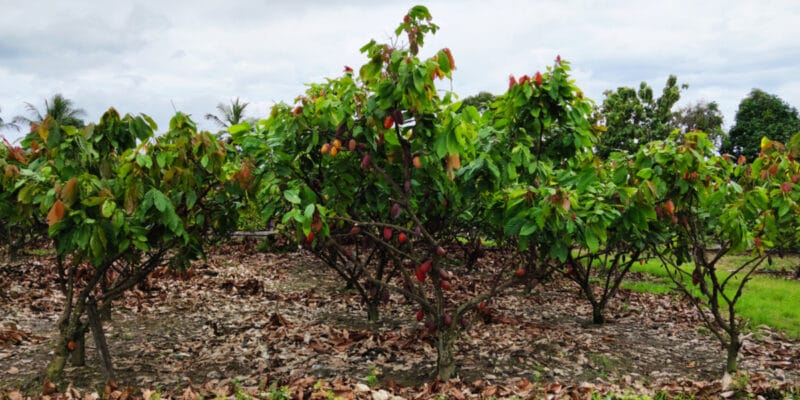Olam's cocoa business published its first social and environmental impact report on April 14th, 2021. The multinational agro-industrial company, which operates in ten African countries, says it has achieved the objectives of its Cocoa Compass sustainability programme in 2020. The aim was for the Singaporean company to ensure 100% deforestation control in its cocoa supply chain.
A new era is beginning for Olam Food Ingredients (OFI) in Africa. The supplier of cocoa beans and cocoa ingredients claims to have 100% control of its supply chain to reduce deforestation. This was achieved in 2020, as reported in OFI’s first social and environmental impact report published on April 14th, 2021.
This optimal level of deforestation monitoring was achieved through Cocoa Compass, the company’s sustainability initiative for the future of cocoa. This programme introduced satellite technology to map tree cover across its network of direct cocoa suppliers. By combining the mapping data with historical deforestation rates, existing forest cover and national park boundaries, the system’s operators are able to identify deforestation risk hotspots and take targeted action. “Monitoring 100% deforestation in our direct supply chain is just the beginning. The unprecedented level of data and information we have at our fingertips will help us identify how and where to act to achieve our longer-term ambition of a cocoa supply chain in which the natural world is protected,” says Gerard Manley, OFI’s Chief Executive Officer.
Eradicating deforestation by 2030
Cocoa Compass has also led to a 13% reduction in processing operations and a 4% reduction in farming operations in 2020, compared to the previous year. By 2030, the company aims to reduce natural capital costs, namely deforestation, by 30% across its global cocoa supply chain, covering nearly 12,000 suppliers.
Olam Food Ingredients is the subsidiary of Olam International Group, a Singaporean food trading and brokerage company. The group is controlled by Singaporean sovereign wealth fund Temasek Holdings. Its operations span five continents, with a particular focus on Africa (in ten countries, namely Cameroon, Nigeria, Republic of Congo, Ivory Coast, South Africa, Egypt, Gabon, Ghana, Mozambique and Chad). With a turnover of 11 billion dollars and 72,000 employees in 2018, the group is particularly active in cocoa, coffee, cotton and palm oil. These are products whose cultivation is the cause of deforestation in Central and West Africa.
Boris Ngounou






